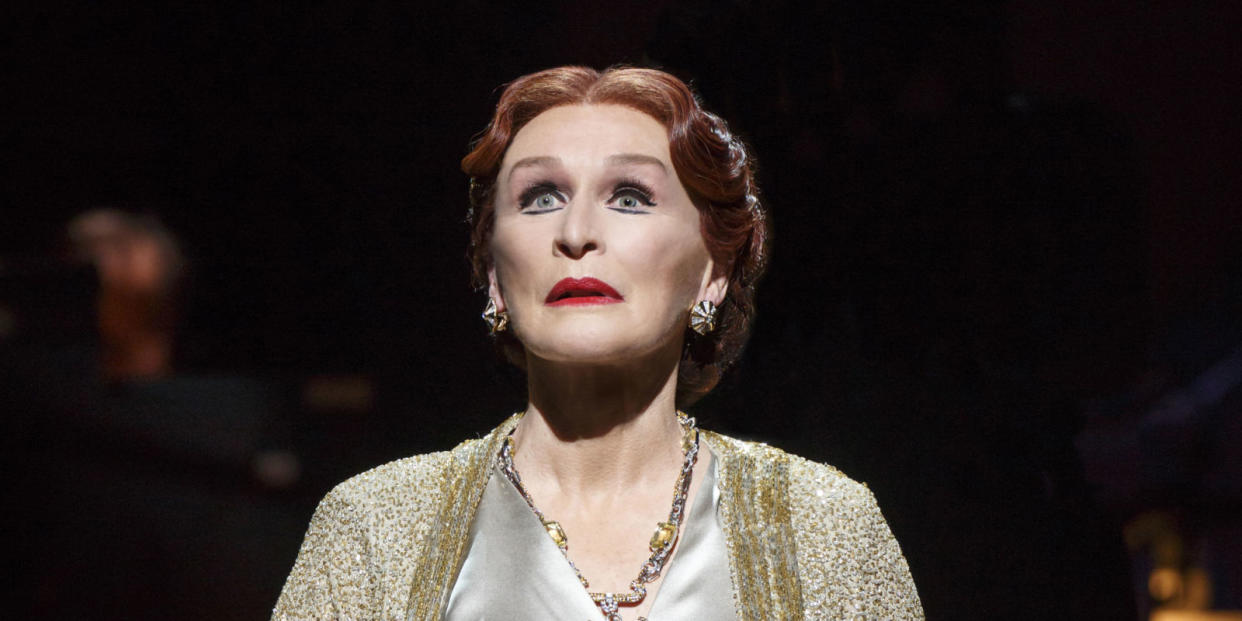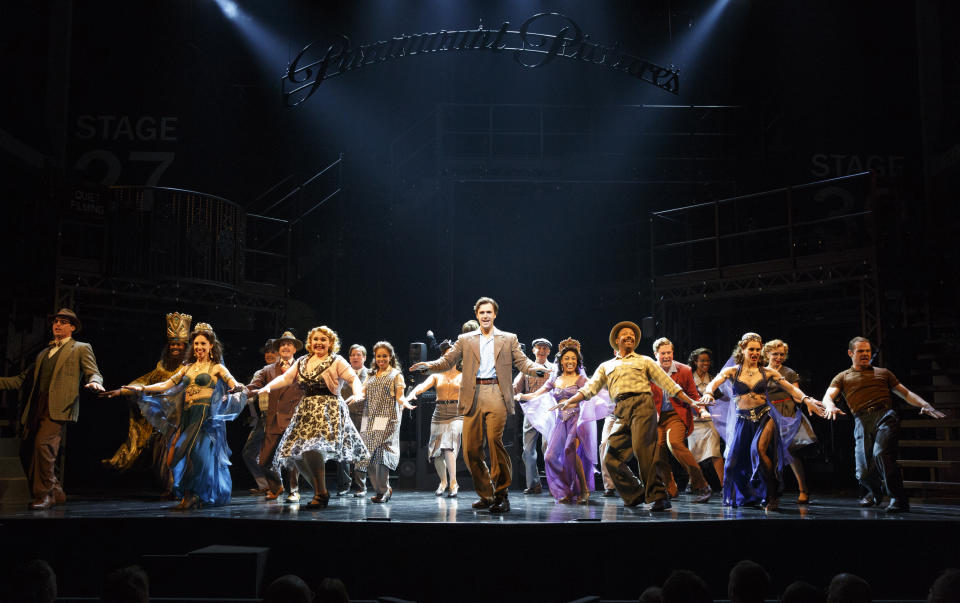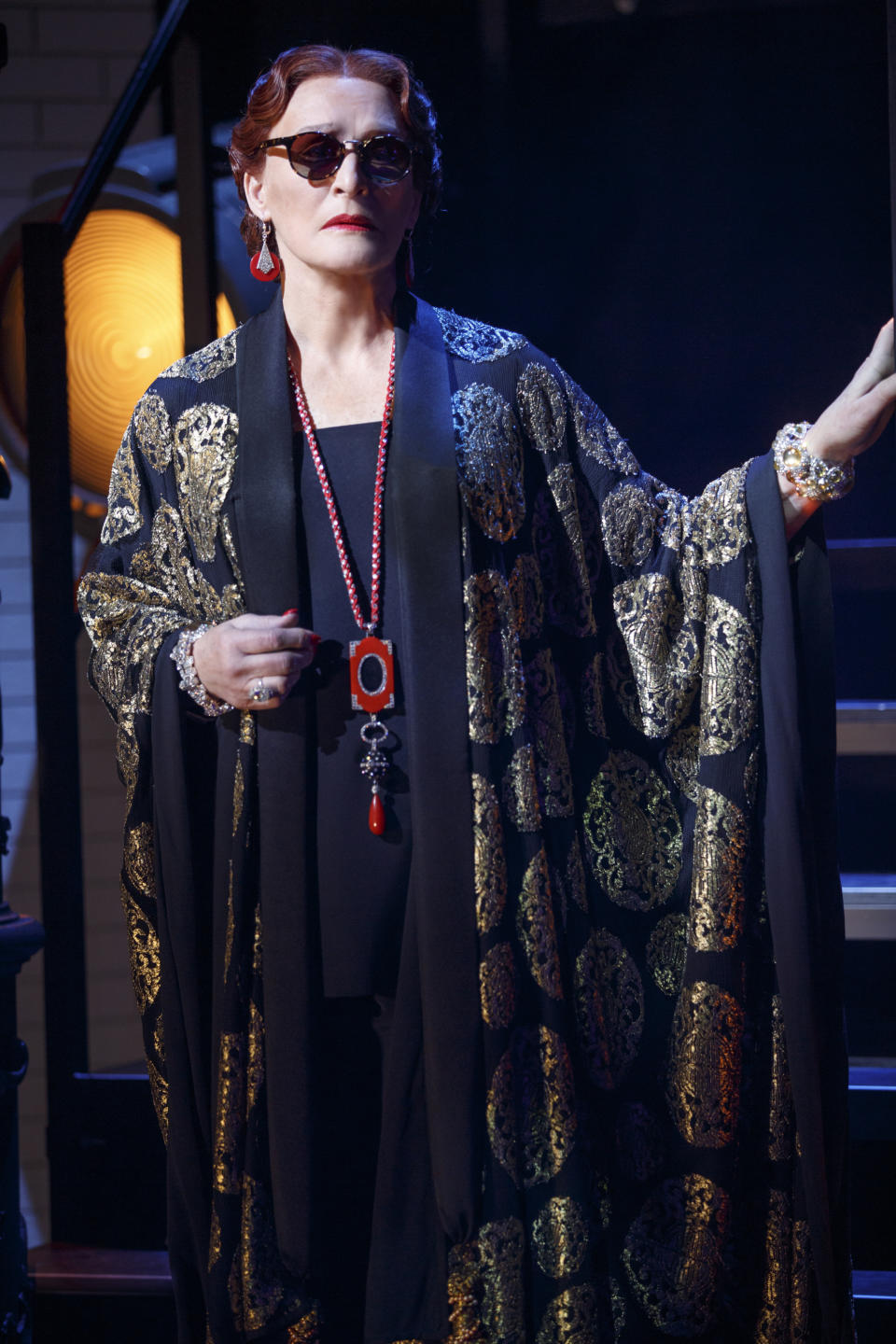Glenn Close Shines in 'Sunset Boulevard' on Broadway

Glenn Close is still big. Perhaps bigger, even.
Twenty-two years after she opened as Norma Desmond in the New York premiere of Sunset Boulevard, she's back playing the faded silent-movie star in Sunset's first Broadway revival. The production has its quirks-it's the play, if anything, that got small-but Close is spectacular.
Her Norma is regal but wounded, imperious but delusional, and so deeply felt that her manic energy makes you question not for a moment that she was once indeed, as is repeatedly asserted, the greatest star of all.

She opened tonight at the Palace Theatre, in a new take on the Andrew Lloyd Webber musical directed by the journeyman vet Lonny Price. Sunset Boulevard, with book and lyrics by Don Black and Christopher Hampton, is adapted from the classic Billy Wilder noir about a delusional, reclusive former star and the young screenwriter she seduces into helping her stage a comeback-rather, a return, she insists-and, in the process, becoming her kept man.
Where the original was famous for its opulent set-mostly the soaring grand staircase of Desmond's mummified Old Hollywood home-this one is skeletal, a fire-escape trellis of stairs and superstructure that serves as the show's various locales. (Hello, limited budget and limited run.) Twice the lyrics refer to the mansion's pipe organ; when Max, Norma's servant, sits to play it, he merely pantomimes.

Other parts of the production seem similarly slim. Michael Xavier, the British actor who plays the screenwriter, Joe Gillis, may fill Joe's new vicuna coat nicely but lacks a voice big enough to match Lloyd Webber's lush and romantic score-Close's domineering performance. His love interest, the young studio assistant Betty Schaeffer, is played Siobhan Dillon, and their lack of any chemistry or excitement makes for an ineffective love triangle.There is the addition a Follies-like younger version of Norma, to occasionally haunt the proceedings, to no useful effect. The only other interesting performance here comes from Fred Johanson, as Norma's factotum, Max.
There is, however, a 40-piece orchestra, purportedly the biggest in Broadway history, and it's seated onstage.

Indeed, it almost seems that Price has pushed so much of the show-the set, the other actors, the other storylines-into the background, to allow two things to take center stage: Close's performance, and Lloyd Webber's score. At the moments when they come together, they are breathtaking. Close manages to earn two burst of entrance applause in her first few minutes, initially when she appears at the top of the stairway and again when she reaches its bottom.
In Act Two, Norma returns, in misguided triumph, to Paramount, signing "As If We Never Said Goodbye." She perches in a director's chair at center stage, an old stagehand lights her just so, and the music swells as the beam hits her, and it's magic.
The original production was also famous, perhaps most famous, as one of the great scandales of British Invasion-era musical theater. Patti LuPone originated Norma in London and was preemptively fired from the Broadway premiere after Close got great reviews in Los Angeles.
All these years later, Close is still ready for her closeup.
You Might Also Like

